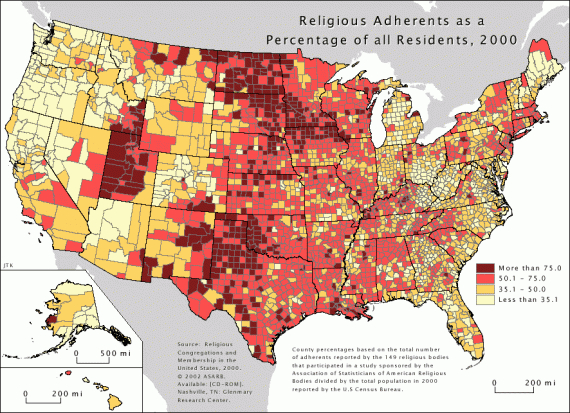 One question I have been mulling over recently is “Who is the church service for — believers or unbelievers?”
One question I have been mulling over recently is “Who is the church service for — believers or unbelievers?”
There are some who believe the church service is primarily for believers, while others believe the church service is primarily for unbelievers. This belief reveals itself in different ways depending on how it is answered.
The Church Service is for Believers
Those who say that the church service is for believers will often have church services that cater to the needs and desires of Christians. There will be an emphasis on programs and teaching that meet the needs of Christians. The sermons will often center on teaching Christians what they need to know to be better Christians. The songs will often use terms and ideas that Christians are familiar with. The programming will center around issues that Christians are dealing with.
In the churches I have pastored, this is the approach I used. But we always did a poor job of reaching unbelievers, as do most churches who follow this model.
Unbelievers who visit a church that is focused on “making disciples of Christians” will often be confused and weirded out by what goes on. They will ask questions like:
- What’s with all the teaching from Romans?
- What does “justification” mean?
- You say Jesus is coming back? That sounds a bit like the legends that say King Arthur is returning.
- Why do I want to learn “Christian business principles”?
- If I want to become a Christian, do I really have to be “washed in the blood of the lamb” and become “the bride of Jesus”? Both ideas give me the willies.
The Church Service is for Unbelievers
Then there are church leaders who say that the church service is primarily for unbelievers. In these church, the leadership understands that much of what the church does and says is a little strange to unbelievers, so they try to look at things from the perspective of an unbeliever, and make the church more “seeker sensitive.”
They gear the church service not toward the Christian, but toward the non-Christian who knows next to nothing about the Bible or church traditions. This tends to attract lots of crowds, and even generates lots of new believers, which is great, but ends up allowing most of these new believers to remain in relative immaturity. Bill Hybels and Willow Creek have recently announced this fact for their own church. The “seeker sensitive” model, while it attracts large crowds, does a poor job of bringing those crowds to spiritual maturity.
Is there a balance or middle ground between the two? I think there is, which we look at in the next post: “Who is the Church Service For?.”
Also, for more on this subject, check out my book, Put Service Back into the Church Service.







 I have a heart that beats for church planting…I’m just not sure I’m cut out to be a church planter!
I have a heart that beats for church planting…I’m just not sure I’m cut out to be a church planter!  I always wanted to be an inventor. I even have a notebook at home full of “Million Dollar Ideas” (Which probably means that they would cost a million dollars to invent, and not make any money!). When I graduated from high school, my plan was to get a degree in Mechanical Engineering, and then invent stuff.
I always wanted to be an inventor. I even have a notebook at home full of “Million Dollar Ideas” (Which probably means that they would cost a million dollars to invent, and not make any money!). When I graduated from high school, my plan was to get a degree in Mechanical Engineering, and then invent stuff.



 Did you hear that most of us are pretty dumb?
Did you hear that most of us are pretty dumb?
 We are writing to let you know of our latest joy—we are expecting our fourth little girl! No, Wendy is not pregnant. We are adopting from Guatemala. Due to the current process of adopting from Guatemala, we are hoping to bring Arianna home in mid to late 2008. Since we will get her when she is between six to nine months old, she will probably be born this spring, which means her biological mother has only recently discovered that she is pregnant.
We are writing to let you know of our latest joy—we are expecting our fourth little girl! No, Wendy is not pregnant. We are adopting from Guatemala. Due to the current process of adopting from Guatemala, we are hoping to bring Arianna home in mid to late 2008. Since we will get her when she is between six to nine months old, she will probably be born this spring, which means her biological mother has only recently discovered that she is pregnant. To make matters worse, Guatemala’s economic and health care system leaves mothers with no option but to give up their babies. Many children are abandoned in the garbage dumps or jungles while others are simply left on the streets to die.
To make matters worse, Guatemala’s economic and health care system leaves mothers with no option but to give up their babies. Many children are abandoned in the garbage dumps or jungles while others are simply left on the streets to die.

 To help you pray for us, we have enclosed a prayer card to put on your fridge, in your Bible, or tape to your bathroom mirror so that you can remember us and join with us in this journey God has blessed us with. Once you’ve finished this letter and found the prayer card, we ask that you read and pray through the prayer card right away. We believe your prayers will be heard and honored by a loving God who is the strong defender of the fatherless and will take up their case (Proverbs 23:11).
To help you pray for us, we have enclosed a prayer card to put on your fridge, in your Bible, or tape to your bathroom mirror so that you can remember us and join with us in this journey God has blessed us with. Once you’ve finished this letter and found the prayer card, we ask that you read and pray through the prayer card right away. We believe your prayers will be heard and honored by a loving God who is the strong defender of the fatherless and will take up their case (Proverbs 23:11).

 There is a tendency in many Christian circles to think that if a particular theological viewpoint can quote a lot of Scripture, it must be right.
There is a tendency in many Christian circles to think that if a particular theological viewpoint can quote a lot of Scripture, it must be right.


 I want to thank all of you who helped out with the adoption process in Guatemala and
I want to thank all of you who helped out with the adoption process in Guatemala and 
 How do you define “busy”?
How do you define “busy”?